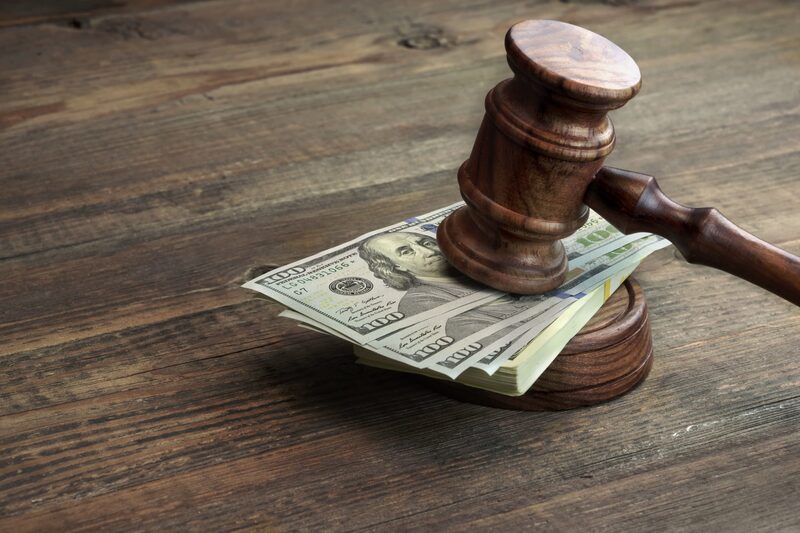
The main purpose of damages in a personal injury case is to compensate someone for the losses they suffered due to the defendant’s negligence. There are multiple types of damages that you can receive if another person’s negligence causes you harm.
What if the defendant’s behavior was particularly bad? What if the defendant knew in advance that what they were doing had a high probability of causing someone harm, but they still did it? In this situation, you may be eligible for punitive damages. Perhaps you’ve heard of punitive damages in personal injury cases, but you aren’t sure what they are and whether your case meets the legal basis. Below is a general explanation of punitive damages in personal injury cases.
What Are Punitive Damages in Personal Injury Cases?
Punitive damages under Colorado law are called “exemplary damages,” and for a good reason: punitive damages exist to punish someone for their behavior. Unlike other damages available in personal injury cases, punitive damages do not compensate victims for their losses. Instead, punitive damages awards punish a defendant for their egregious behavior and attempt to deter others from engaging in the same terrible behavior in the future.
How Punitive Damages Are Determined
Generally, a court does not award punitive damages in personal injury cases involving simple negligence. Instead, the defendant’s conduct has to be worse for a punitive damages award. Specifically, Colorado law requires one of the following for punitive damages claims:
- Fraud,
- Malice, or
- Willful or wanton conduct.
Most commonly, in personal injury cases, the basis of the request for punitive damages will be due to the willful or wanton conduct of the defendant. Willful or wanton conduct means that a defendant purposefully does something they know is dangerous but still acts without regard for the consequences or the rights or safety of others.
This is a much higher standard than simple negligence. For punitive damages to be awarded, the defendant must know that what they are doing is dangerous to others but do it anyway. A court awards punitive damages to make a statement that society will not tolerate this type of bad behavior.
Examples of Punitive Damages
There are many examples of punitive damages in personal injury claims. An example of how negligence can become willful or wanton conduct is if the defendant knows of a condition on their property that will cause harm but fails to correct it. Let’s say that a business owner’s retail space has a damaged spot on the floor that is a trip hazard. One customer slips and falls and sues the business, yet the business owner does nothing to repair it because they don’t want to spend the money to do so. Several more customers slip, fall, and injure themselves. The business owner knows that the spot is dangerous but fails to do anything about it, knowing full well that it affects the safety of their customers.
Drunk driving accidents are the most common cases where punitive damages may be awarded. If a driver knows that they are intoxicated when they get behind the wheel of their car, then they are doing something that they know is highly likely to injure someone on the road. They know driving under the influence is dangerous but still do it. They chose to drive drunk without regard for the consequences or the safety of others on the road.
How Much Are Punitive Damages Awards?
To understand how much you may be eligible for punitive damages, you must first know the amount of compensatory damages you may be able to recover. Colorado bases its punitive damages awards on how much you recover in compensatory damages. Depending on the circumstances, you could recover punitive damages that equal one to three times your compensatory damages award.
Compensatory Damages
In a personal injury case, the injured party can recover compensatory damages. Compensatory damages compensate the victim for their losses. Compensatory damages consist of economic and noneconomic damages.
Economic damages are those damages that have a fixed cost attached to them. Examples of economic damages include:
- Property damage like damage to your car,
- Medical bills,
- Treatment costs, and
- Lost wages from missing work due to your injury.
On the other hand, noneconomic damages are more subjective and somewhat difficult to calculate. They include things like emotional distress and pain and suffering.
Non-economic damages for injuries that occur after January 1, 2022, in cases other than medical malpractice, are currently capped at $642,180. A court can increase this to $1,284,370 if the injured party can prove their case with clear and convincing evidence rather than the normal negligence standard of a preponderance of the evidence.
Punitive Damages Calculation
It’s important to understand compensatory damages to determine punitive damages. Under Colorado law, punitive damages are awarded in an amount equal to the amount of compensatory damages—economic and noneconomic damages combined.
A court, however, can increase the amount of punitive damages if
- The defendant continued to engage in the same conduct while the lawsuit was pending; or
- The defendant continued to act in the same willful or wanton manner, which aggravated the victim’s injuries.
Even if the court does decide to increase the amount of punitive damages because of the above conduct, the court cannot increase them beyond three times the amount of compensatory damages. For example, if you are awarded $5,000 in compensatory damages and prove that the defendant continued the same behavior during your lawsuit, you cannot recover more than $15,000 in punitive damages.
Tax Consequences of Punitive Damages
Depending on the circumstances, certain portions of your damages award may be exempt from being taxed by the Internal Revenue Service. Primarily those compensatory damages that are attributable to a physical injury. However, punitive damages are subject to taxation even in personal injury cases.
Contact Our Lawyers Today
If someone’s grossly negligent behavior has injured you, you should speak to an experienced personal injury lawyer to determine if you may be eligible for punitive damages. The attorneys at Gerash Steiner Blanton, P.C., have represented many clients like you in their personal injury cases. We’ve aggressively litigated cases to help our clients recover the compensatory and punitive damages they deserve. Contact us today for a consultation to see if you may be eligible for punitive damages in your personal injury case.

